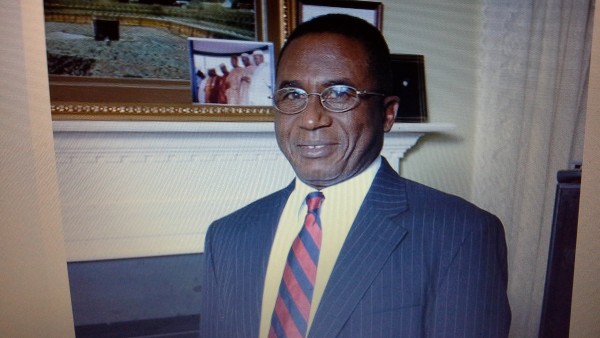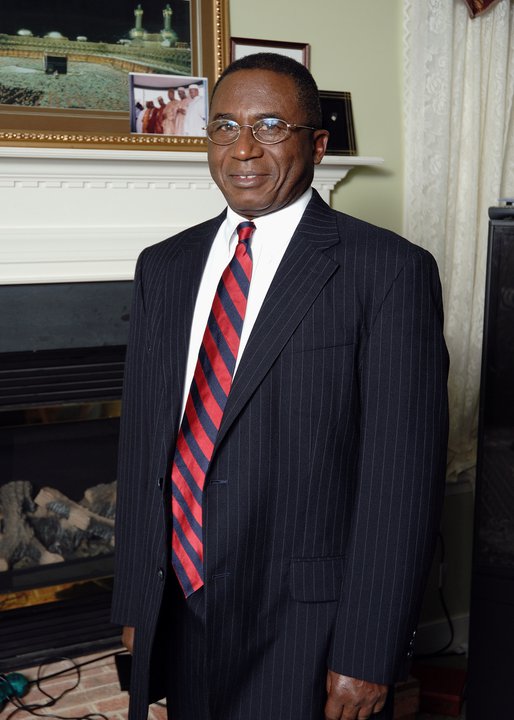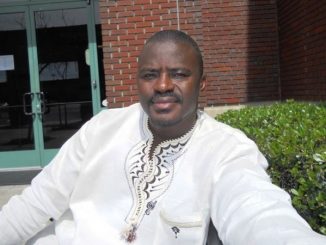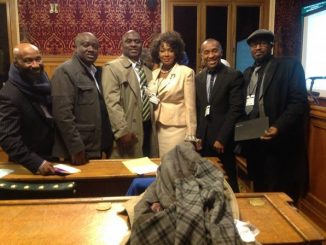
By Dr. Yahya Kalokoh :
The history of humanity within the framework of political discourse and economic development, and with specific reference to Sierra Leone has often proved that societal advancement does not rest solely with academia or the “educated elites”. This statement is not meant to demean the efforts and knowledge of the “educated”. However, it is purposeful to reflect that a society’s development depends on a multitude of efforts and mainly from well meaning “educated” as well as the “uneducated” patriots or citizens.
It depends on the amount of love, commitment, and communicative processes the leaders and the led have for their communities or country. It also depends on the priority given to the country’s interests trumping all other interests, and the self-devotion one has to his or her fellow citizens. This I believe is pivotal in advancing the self-determination of communities and nation states. However, as history has often shown, man’s priority for self-preservation has often times trumped all communal and the national interests, notwithstanding the level of education and enlightenment constituents may have.
It is worth noting that notwithstanding the positives, one of the main challenges posed by the “educated” to society is intellectualism and elitism. They are often times perceived as engaging in socio-economic and political pursuits that are disconnected from everyday practical concerns of society. As highlighted by Tapscott and Williams (2010), in “Macrowikinomics: Rebooting Business and the World” intellectualism connotes “a willful disconnect from the everyday world; esoteric, overspecialized… and academic elitism …. .” Such analysis buttress the realistic approach of people in leadership, making decisions not so much from the perspective of theory, but from common sense approaches to problem solving based on limited available options. On the flip side, many intellectuals and political opportunists, use the cloak of academia and experiences especially from renowned international institutions to feast on unsuccessful leadership outcomes, with no consideration for the daunting challenges and limited choices faced by sincere and hardworking decision-makers. They behave like the American “Monday Morning Quarter-Back” analysis. Such behavior is untenable in dictatorship regimes, and often leads to human rights abuses.
An example of the “willful disconnect from the everyday world” in Sierra Leone society, espoused by elitist behavior is reflected in the controversy surrounding one of the top aspiring candidates for leadership in the main opposition Sierra Leone People’s Party. It is difficult to understand how a proclaimed intellectual with renowned international credentials fail to understand that to do a simple and basic homework before declaring his candidacy. To claim leadership in any organization requires a basic requirement, i.e. one must first be a registered member. For decades, this individual has claimed to be a passionate member of that party, a legacy from his late father. Notwithstanding this “larger than life” personality as reported, never had a verifiable registered membership. One thing is clear in this saga, i.e. elitisms, arrogance, misconception, and a disconnected view of how the world operates in real life leads to disaster, one that Sierra Leone cannot afford. An important question to ask in this regard is whether person is ready for “prime time”. The algorithmic approach applied by this “great mind” does not have a place in the leadership of Sierra Leone.
One other group requiring a response is the self-proclaimed champions of the so-called “Concerned Sierra Leoneans” purposefully using academic titles and/or international experiences as pedigrees to “fix” what they claim to be broken. They claim to hold the current regime accountable for misrule in Sierra Leone. From my perspective, the group exuberate clownish behavior, and it bothers me when they clownishly pretend to be “know-alls”, some with PHD titles, parading in social media with insults against the current administration in Sierra Leone. Is this how to hold an administration accountable? These people feel they can make themselves relevant with their acclaimed PHDs or other titles by distorting the actions of others. For them, there is nothing positive happening in Sierra Leone. They harbor self-conceived notions of being experts in running national affairs from remote distances, and diluting social media.
But these clowns need to be reminded that one of the sad chapters in the history of Sierra Leone politics relates to the role played by intellectuals. Part of that history taught us that the beginning of the demise of Sierra Leone politically and economically, and even its cultural heritage was in many ways attributable to the behavior of the “educated” elite Siaka Stevens (May his soul rest in peace) incorporated in his government starting from the 1970s. We may agree or disagree on this issue, which should be healthy. Nevertheless, the fact remains that blatant corruption was more pronounced when “Western educated elites” were recruited into his government. This does not mean there was no corruption before then. However, the inherent hypocrisy was that some of the so-called “educated” who stood on the pulpit of academia and criticized Siaka Stevens became more corrupt than some of their predecessors, many of whom were regarded then as “half baked”.
In reminiscence of my young adult experiences in Sierra Leone, one of the wise sayings that still resonate with me today regarding political discourse, academic knowledge, and leadership, was that of late Siaka Stevens. Notwithstanding the controversies people may have about his tenure, his statement “NAR SENSE MAKE BOOK, NOTO BOOK MAKE SENSE” make sense”, meaning it is wisdom that is translated in books, and not necessarily the other way round makes a lot of sense to me, and I believe to most people. People can agree or disagree with his legacy, but I believe there was a lot we learned from his leadership either for good or for bad, depending on the view of the beholder. However, that statement reflects great wisdom. For some he was not considered to be an “educated” man depending on how they define the “educated”. However, without doubt he used his wits to turn the tables on the so-called “educated elite”. Whether he applied that wisdom in leadership to benefit his country is still an open debate for historians, sociologists, anthropologists, and posterity.
Another important issue I would like to point out in challenging the acclaimed experiences in international institutions like the World Bank and the United Nations is that global solutions to socio-economic and political problems have generally not proven effective in stabilizing societies and alleviating poverty at the local levels. International recipes for solving socio-economic problems in third world countries have in many cases proved to be futile. It is more about austerity than cleaning up the mess created by inept politicians, theorist experts and “know alls”. To be effective, one has to have an affinity with the communities he or she is working with, be able and willing to explain and listen, and have buy-ins. It is important for the leader to effectively blend local values and other suitable external values to motivate communities and constituents. “Big English” and “Coat and Tie” appearances do not necessarily help in motivating people into effective action.
It is also important to note that one of the main purposes of leadership is to help individuals determine ways to direct pre-existing motivations to more profound efforts and meaning for shared values. Such a process contributes to the greater good of both the individual and society. I believe the
constituents of Sierra Leone are more capable in developing metrics that can help them determine the kind of leadership they can believe in, than what some of the “blind philosopher kings” think. They no longer rely on disconnected algorithms to come to terms with their daily realities on how they are governed. They are as much “concerned Sierra Leoneans” as anybody else in determining the heart and soul of their beloved country. While it is healthy to debate positively and constructively on how to develop Sierra Leone, the onus is on both the “educated” and the “uneducated” to determine workable solutions. Let us all be mindful of what we say to each other. Most people are no longer interested in receiving lectures from people who do not have anything positive to provide, but looking for opportunities for things to go wrong, and jump in to criticize.
Lastly, some of these opportunists are inauthentic rogues that are not as sincere “Concerned Sierra Leoneans” as they claim to be. Using PHD titles, experience in Academia, or United Nations and the World Bank experiences to capture attention is cheap talk. The prescriptions some of these misguided intellectuals have are based on plagiarism, i.e. they piggy bag on the honest and genuine mistakes of others who are practically trying to solve problems to score points and make themselves relevant. Some of the prescriptions they provide may only work in theory with no practical applications in fluid economic and social environments. The sad thing for these people is that they are very disconnected and disoriented from every day realities of leadership challenges. I admonish the real concerned Sierra Leone to watch out for these opportunists, confront them intellectually, and call them out. Please do not allow them to steal the moral high ground by piggy bagging on the relentless efforts of hardworking people. Some of them sit over here drinking milk and honey every day and night and feasting on social media to claim relevancy. Our beloved country does not need their lectures.




